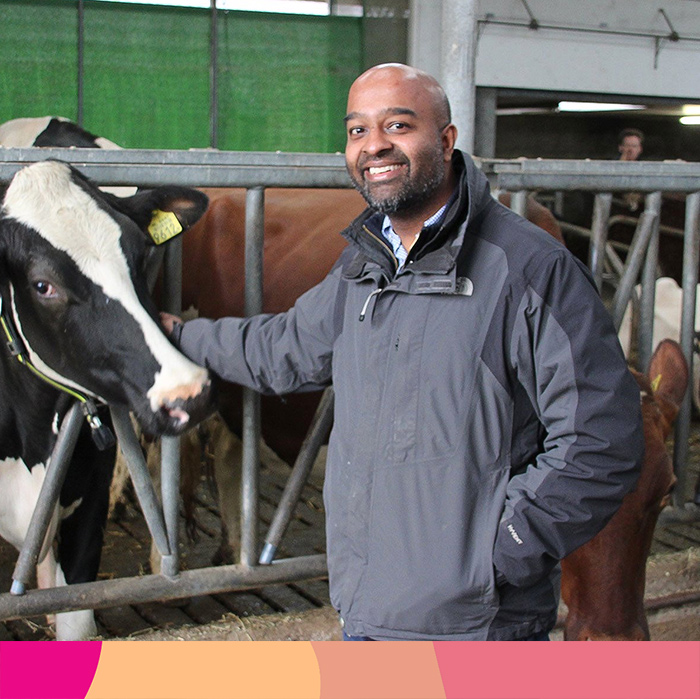-
-
- Advancement of the Professions Committee
- Standards Committee
- Audit and Risk Committee
- Education Committee
- Disciplinary Committee
- Charter Case Committee
- Preliminary Investigation Committee and Disciplinary Committee Liaison Committee
- Registration Committee
- Preliminary Investigation Committee
- Paper classification: some definitions
-
-
-
-
- About extra-mural studies (EMS)
- EMS requirements
- Information for vet students
- Information for EMS providers
- Information for vet schools
- Temporary EMS requirements
- Practice by students - regulations
- Health and safety on EMS placements
- EMS contacts and further guidance
- Extra-mural studies fit for the future
-
-
- Code of Professional Conduct for Veterinary Surgeons
- Code of Professional Conduct for Veterinary Nurses
- Contact the Advice Team
- XL Bully dog ban
- 'Under care' - guidance
- Advice on Schedule 3
- Controlled Drugs Guidance – A to Z
- Dealing with Difficult Situations webinar recordings
- FAQs – Common medicines pitfalls
- FAQs – Routine veterinary practice and clinical veterinary research
- FAQs – Advertising of practice names
- GDPR – RCVS information and Q&As
-
- Accrediting veterinary degrees
- Accrediting veterinary nursing qualifications
- Reasonable adjustments for student vets
- Health and disability in veterinary medicine study and practice
- The role of the veterinary schools and the RCVS
- Reasonable adjustments and the Equality Act 2010
- Reasonable adjustments and Day One Competences
- Examples of reasonable adjustments for vet students
- Annex
- Reasonable adjustments for student vets - summary
- Reasonable adjustments for student veterinary nurses
- Health and disability in veterinary nurse education and training
- Reasonable adjustments for students and the UK disability discrimination legislation
- Educational assessment of veterinary nurses
- Roles of key stakeholders in the application of reasonable adjustments
- Examples of reasonable adjustments for vet nurse students
- Embracing reasonable adjustments for student vet nurses - summary
- External review of the RCVS by ENQA
- Requirements for remote and online student assessments
Mind Matters-funded research on impact of racism published in psychology journal
10 July 2025
A research project, looking at the impact of racism in the veterinary sector initially funded by the RCVS Mind Matters Initiative (MMI) in 2020 has published a paper in BMC Psychology.
The paper, titled “It shreds me from within”: thematic analysis of the impact of racism on veterinary professionals and students in the United Kingdom', is a joint study from researchers at the British Veterinary Ethnicity and Diversity Society (BVEDS), the Royal Veterinary College (RVC) and London South Bank University and is the result of an initial research project funded by a £20,000 Sarah Brown Mental Health Research Grant from RCVS MMI in 2020.
 The research was carried out in 2021, led by BVEDS co-founder Dr Navaratnam Partheeban MRCVS OBE (pictured) and the RVC’s former Research Impact Case Manager Dr Victoria Crossley MRCVS. The project involved conducting a survey open to all Black, Asian and Minority Ethnic (BAME) people working and studying in the UK veterinary sector, which aimed to investigate experiences of racism and its impacts on mental health and wellbeing.
The research was carried out in 2021, led by BVEDS co-founder Dr Navaratnam Partheeban MRCVS OBE (pictured) and the RVC’s former Research Impact Case Manager Dr Victoria Crossley MRCVS. The project involved conducting a survey open to all Black, Asian and Minority Ethnic (BAME) people working and studying in the UK veterinary sector, which aimed to investigate experiences of racism and its impacts on mental health and wellbeing.
The published paper analysed detailed survey responses from 69 veterinary professionals and veterinary students from a BAME background to look at the psychological impact of racism and discrimination they had experienced.
The survey was carried out with a view to determine what minority ethnic individuals from the veterinary community think could, and should, be done to tackle racism in the veterinary professions, and gather the evidence to help design appropriate interventions for those impacted by racism and discrimination. A summary of survey participants’ suggestions was presented at the MMI Symposium in 2023.
This included: increasing diversity and inclusion at all levels and areas of veterinary work, especially in leadership positions; ensuring BAME individuals are better represented in the sector; raising awareness and educating people about diversity, racism and allyship; having open conversations about racism; ensuring mechanisms are in place to report and deal with incidents; having zero-tolerance policies; ensuring sources of support and advice are visible, and ensuring racism is consistently challenged and taken seriously.
Overall, the published research found that experiencing racism in the workplace had caused minority ethnic veterinary professionals and students to experience a sense of alienation and insecurity, homogenisation and inferiorisation, and disappointment and futility. The open-access paper (available to read for free on the BMC Psychology website) says these experiences undermined the principles needed to construct and maintain a positive sense of identity, including self-esteem, belonging and meaning, affecting both their personal and professional lives.
 Commenting on the publication of the research, Rapinder Newton (pictured), MMI Lead, said: “It is very gratifying to see research funded by MMI on such an important issue to be published, open-access, in a peer-reviewed journal and we commend all those involved in this research for their achievement.
Commenting on the publication of the research, Rapinder Newton (pictured), MMI Lead, said: “It is very gratifying to see research funded by MMI on such an important issue to be published, open-access, in a peer-reviewed journal and we commend all those involved in this research for their achievement.
“It’s important that we don’t shy away from these important issues that have a huge impact on the lives and careers of those in our veterinary community.
“RCVS is committed to ensuring inclusion and representation within veterinary professionals and support the outcomes of this. Over recent years we have hosted the BAME working group, producing guidelines and resources on anti-racist activities and guidance on religious clothing and beliefs.
“We continue to provide educational resources for students, educators and those in the veterinary professions, such as our recent Reasonable Adjustments guidance for veterinary students, and the RCVS Academy course on unconscious bias. We also continue to amplify the voices of those from underrepresented backgrounds throughout the entire year, for example through our annual Black History Month campaign.
“We will consider the research to understand whether there are further interventions that could be put in place to support those whose health and wellbeing has been impacted by discrimination, and we will continue to raise awareness of these topics. Veterinary careers are for everyone and any form of discrimination is unacceptable.”
Project co-leads Navaratnam Partheeban and Victoria Crossley said: “This project was started after a student had the courage to speak out about incidents of racism they had experienced whilst studying and on extramural placements. The power of that student’s voice led to a profession-wide survey investigating experiences of racism in the UK veterinary sector to better understand what people from ethnic minority backgrounds experience in one of the least diverse professions in the UK. We are hoping that the voices heard through this paper will result in action on a greater scale.
“Racism is a widespread problem in the vet sector and this paper shows how racism in any form results in a psychologically negative impact on veterinary professionals who experience it. With the backdrop of low diversity in the profession and elevated stress and mental health and wellbeing issues affecting veterinary professionals and students, it is essential that the profession is supportive, inclusive and empowering to those from ethnic minority backgrounds. It is imperative that we all come together to tackle racism by raising awareness and education around the issue to ensure prevention, action and support.
“We want to deeply thank everyone who took the time to complete the survey and share their personal experiences that were so critical to this important work. We also want to express our gratitude to the whole project team whose dedication and expertise were essential to conduct the project and enable this paper to be published.
“We hope that the findings of this work motivate individuals and organisations to reflect, learn and act to make the veterinary sector more diverse, equitable and inclusive to all.”
Those who are interested in undertaking similar research should consider applying for the new MMI Research Grants programme, which provides two grants each year (£15,000 and £5,000) and is aimed at researchers at all stages of their careers. Mental health and equity, diversity and inclusion (EDI) is one of the key areas of focus. Last year MMI funded research into alcohol use, and the initiative is passionate about driving new insights into veterinary mental health in order to make a real difference.